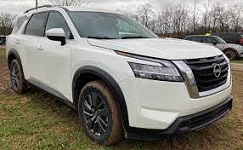Car sales in 2022 have proved just as challenging as in 2021, as supply chain bottlenecks and record inflation deepen automakers’ uphill battle.
With rising costs and low inventory plaguing the industry, global car sales revenues are expected to plunge by $200bn this year. The global automotive industry has had a rough three years, with multiple factors contributing to the low stock and high prices the car buyers are now facing. First, the COVID-19 pandemic disrupted production lines and changed consumer behavior. But the 2022 challenges were just as tough.
Car sales in Europe have been falling for months as the war in Ukraine further cripples supply chains and spurs record inflation that risks undermining demand once shortages ease. The US car buyers also can’t catch a break, as rising costs and low inventory have made it impossible to bring home a new car these days. As a result, global car sales revenues dipped below 2014 levels.
According to a Statista survey, last year, the global automotive industry generated $2.08trn from car sales, a significant recovery from $1.67trn in 2020, but still below pre-COVID-19 revenues. However, Statista expects revenues to drop by 9% YoY to $1.89trn in 2022 and remain around that value next year. This steep revenue drop brought the entire market eight years back, below 2014 levels, when the automotive industry made roughly $1.99trn from car sales, according to data presented by Augusta Free Press.
Total Unit Sales Down by 6.5 million This Year
Although the demand for new cars remains high, automakers can’t keep up. As a result, dealerships have significantly marked up any models in stock, bringing them record-high profits recently.
Nevertheless, the total car unit sales are at their lowest point in years. Statista expects global care sales to hit 67.3 million this year, 6.5 million units less than in 2021, and 2.6 million below 2013 sales figures.
Mini cars and full-size vans will witness the biggest sales drop, with unit sales falling by 12% and 10% this year. All other market segments are expected to see around an 8% drop.
According to Statista data, Toyota remains the leading automaker globally, with a 9.6% sales share in 2022. Despite facing production stoppages due to war in Ukraine and supply chain bottlenecks, Volkswagen AG remained the second-largest carmaker with a 7.2% market share this year. Ford follows with a 7.1% share, respectively.

